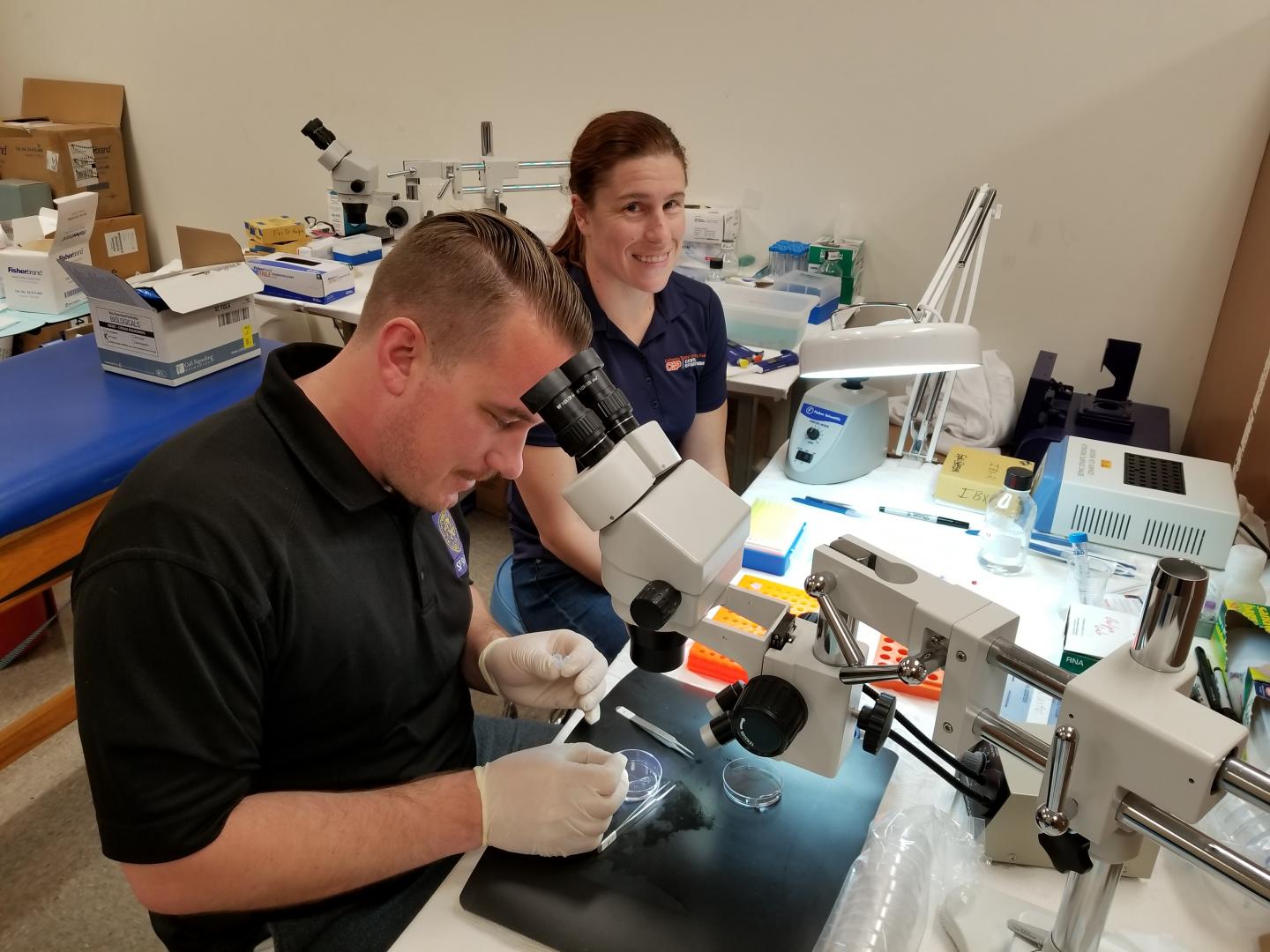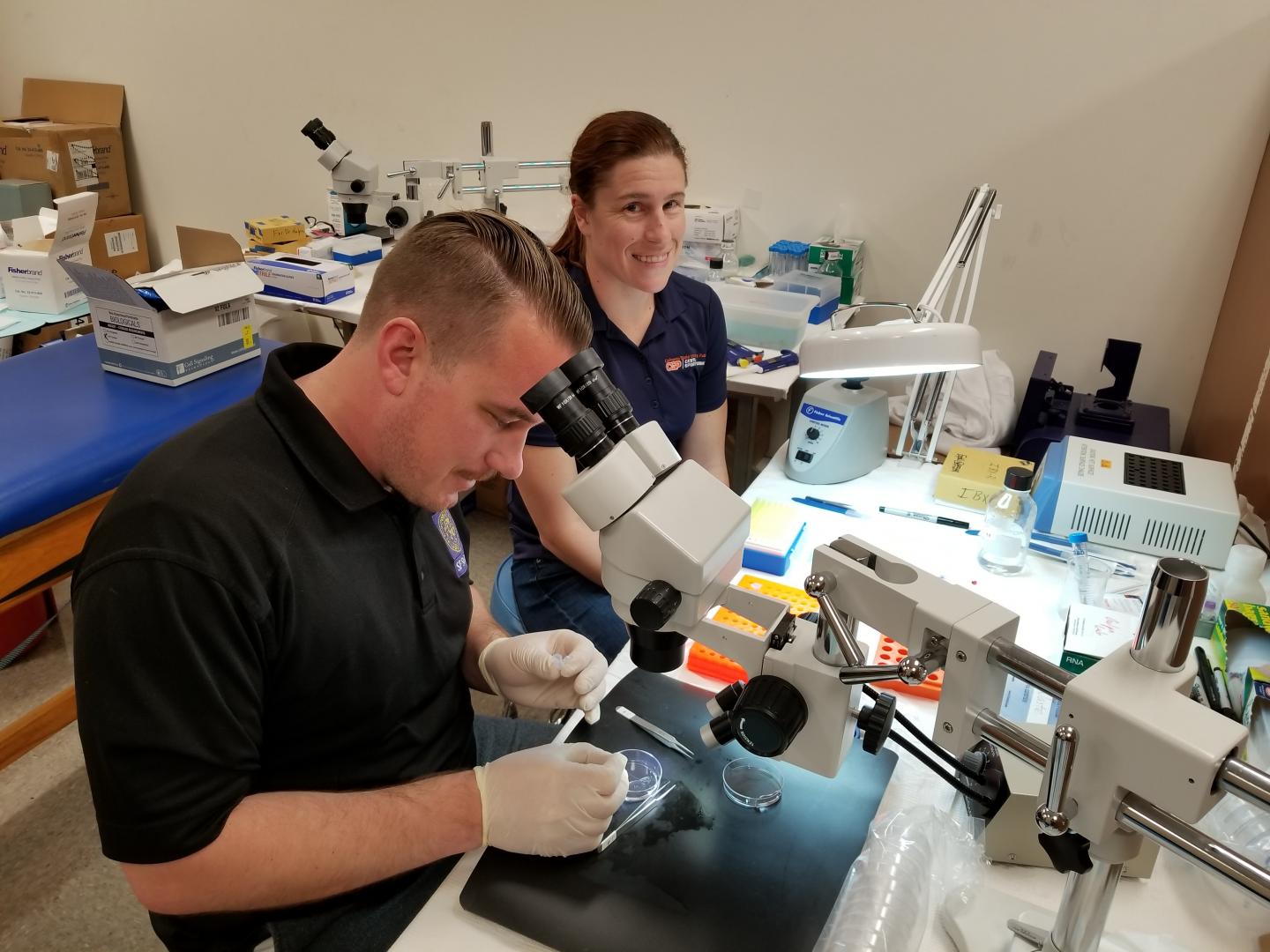
Credit: Andy Galpin, CSU Fullerton
San Francisco State University researchers have discovered a new method for testing levels of a tiny but hugely important protein — "AMPK" — in human muscle cells. "AMPK is the gas gauge that tells each cell in your body if your fuel is too low. We call it the energy sensor of the cell," said Assistant Professor of Kinesiology Jimmy Bagley.
Muscles make up 30 to 40 percent of our bodies and are the largest users of sugar and fat for energy. But if people have too much stored fuel — if they are obese or not exercising, for example — AMPK is not activated and the body doesn't regulate blood sugar the way it should. Bagley and his colleagues at the Center for Sport Performance at CSU Fullerton are the first to test the new method on human muscle cells. Their innovative technique was just published in the Journal of Applied Physiology.
Using human muscle fiber samples provided by Stanford University and CSU Fullerton, researchers in Bagley's Muscle Physiology Laboratory manually isolate single muscle fibers, each about half the size of a human hair. With custom microscopes, tweezers and chemical solutions, they determine fiber type and prepare each cell for protein analysis. They then deliver the cells to CSU Fullerton, where the protein is analyzed using a new machine called Protein Simple. "We can tell what's happening with the AMPK protein in individual muscle cells with a high level of precision," said Bagley.
The new method allows researchers to isolate and examine muscle fibers in much greater detail than was possible before. "What people did in the past is take a muscle sample and grind it up — homogenize it — and then run an analysis on that big ground-up sample," said Bagley. "The problem with that is that fat cells, blood vessels, stem cells and other things get mixed in, meaning that there can be false positives or false negatives."
Until recently, diabetes researchers have focused on fat cells and cells in the pancreas and other organs. But muscles are the biggest sugar reservoir in the body, said Bagley. "We need to get diabetics' muscles to use more sugar, and activating AMPK is one of the steps that tells the muscle to do it." The kind of analysis his lab is performing could be used as part of a fitness and training program for pre-diabetics and others. Researchers could take muscle biopsies before and after a 12- to 16-week exercise regimen to see how the muscle fibers have adapted.
"We want to know at the cellular level — is this muscle fiber able to use glucose better?" said Bagley. "It then gives us ideas about how to treat that. It can probably be used to see if certain pharmaceuticals could affect the AMPK protein, as well."
Bagley currently shares the Protein Simple device with CSU Fullerton, but he is seeking funding for one that can be housed in the Muscle Physiology Laboratory. In the meantime, he says, this new method of analyzing AMPK "supports the ground level of molecular muscle biology in the 21st century. Now we're going to keep stacking on top of it."
###
Media Contact
Lisa Owens Viani
[email protected]
415-338-3053
@SFSU
http://www.sfsu.edu
Original Source
https://news.sfsu.edu/news-story/breakthrough-sf-state-kinesiologists-studying-metabolic-protein#





